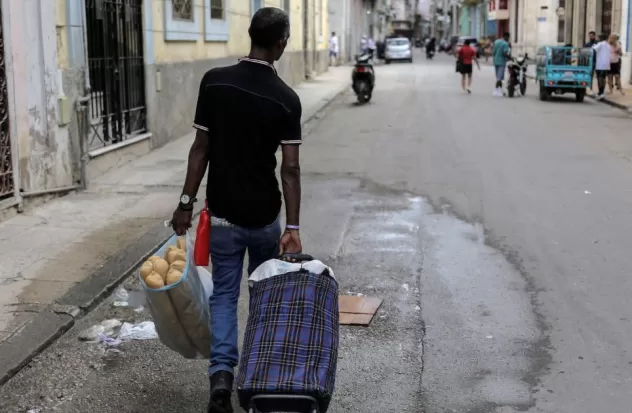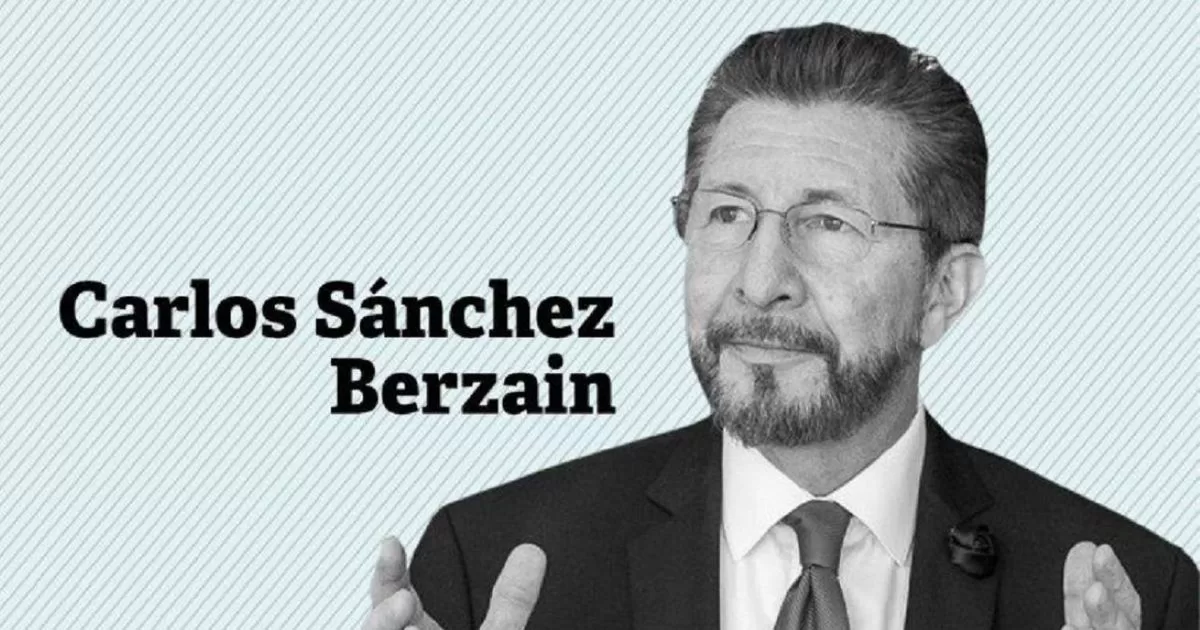HAVANA CUBA.– On the morning of Saturday, March 23, Sixto, 55 years old, owner of a small cafe located at the intersection of La Palma, Arroyo Naranjo municipality, south of Havana, in the middle of torrential rain, collected the hail with a bucket. which was in the patio of his house and he took advantage of it to cool the beers and soft drinks. Since Friday night, gusts of wind, hailstorms and more than 300 mm of rain affected the capital.
Sixto, who has the cafeteria located in the doorway of his old high-strut house, says that “the hailstones were bigger than one peso coins. At around eight in the morning they turned off the light. In the absence of ice, the hail helped me keep the drinks for sale cold. We were without electricity for almost six hours.. Before the storm, in the area where I live, water had not entered for five days. The neighbors called the Aguas de La Habana company over and over again. For pleasure. Nobody picked up the phone. Several neighbors went to the municipal party headquarters and no one attended to them. When the power went out, the neighborhood became hot.
“Shortly two patrol cars and a leader of the municipal party showed up, who started talking shit. We neighbors stopped him: ‘Stop blah, blah, blah and turn on the water and electricity.’ About the time they turned on the current. And the next day the water came in. A child who does not cry does not suck. The government only listens to people’s complaints when people take to the streets. Otherwise they don’t pay any attention to you”says Sixto.
If retired Mirta has learned anything, it is to demand her rights. A week ago in a building on her block, on Poey between Patrocinio and O’Farrill, in the Havana neighborhood of La Víbora, they put graffiti against the dictatorship on a wall.
“Immediately a brigade showed up to paint the wall. We neighbors took advantage of the presence of two government officials from Diez de Octubre to raise our complaints. We told him that chicken and eggs have not been coming to the butcher shop for a while. That we had been without water for four days and that no one fixes the leaks in the street, among other complaints. The officials tried to make us dizzy with their humped tooth. But we stand. A neighbor told them that the rulers owe themselves to the citizens and not the other way around. That they were ineffective and indolent because no one elected them and that when the people begin to demand their rights either things will straighten out or they (those of the regime) will leave. We remind you that the power of a country lies in the sovereign, in the people, who are us.”
Michel, a graduate in political science, thinks that “the current government has a high percentage of unpopularity throughout the island. His narrative is no longer convincing. The credibility of Díaz-Canel and his cabinet is minimal. The propaganda apparatus of the communist party tries to sell the story of a president concerned about the problems of Cubans. But there is no frank and direct dialogue with the population. It’s a monologue. And they leave the people no choice but to applaud and ratify their proposals.”
Michel believes that if the government wanted to reverse the situation “it should start by establishing methods of popular participation, transparency rules where citizens can monitor the use of the budget and public money. In any democratic nation the agenda of the president and ministers is public. The authorities must leave behind reunionism, false unanimity and consult with the people about the model of country they want. With new technologies it is very easy to collect citizens’ opinions. Direct plebiscites can also be held, as in Switzerland, on certain issues of national interest.
“A government should not punish companies and people who generate wealth legitimately. The legal machinery, like the press, must be independent of the State. A good government must ensure that all citizens have access to health and education and have equal opportunities. Also, guarantee social assistance to the most disadvantaged. The current regime had a lot of socialism and democracy, but it is far from carrying out democratic principles. They should begin by handing over many of the companies that suffer losses to the workers and converting them into autonomous cooperatives,” Michel asserts.
Sheila, a medical specialist, residing in Santiago de Cuba, more than 900 kilometers east of Havana, believes that “the government tries to manipulate, defame and deceive the people. Díaz-Canel’s act in Songo la Maya was an example of manipulation. They put on a political show, trying to sell popular support. But a few words from a resident revealed Díaz-Canel’s dictatorial and arrogant streak. They took him out of the rally as if he were a criminal. “The government should listen to ordinary people and not treat us like idiots.”
The power establishments in Cuba administer the country as if it were a military camp. They have designed a parallel world of supposed unity and harmony that does not exist in the population. In a parody worthy of Cantinflas, Beatriz Johnson, first secretary of the communist party in Santiago de Cuba, assured in an appearance on the local channel Tele Turquino that the people of Santiago understood and showed approval of her explanations after climbing to the roof of a house in the middle of the popular protests of Sunday, March 17.
Castroism tries to sell the matrix of a supposed dialogue with the people and not have repressed the people. But the reality is different. According to Prisoners Defenders, after the protests in Santiago, Bayamo and Matanzas, 32 people have been arrested. The regime has already launched its hate machinery against those who think differently.
On Saturday, March 23, reporter Mayté García Tintoré published a column in the provincial newspaper Sierra Maestra attacking the people and calling the protests in Santiago a ‘degrading spectacle’. He accused the mothers and grandmothers who led the peaceful demonstrations of being “criminals,” who “do not cause pity, they cause shame,” he called the retirees uninformed, the workers lacking character, the young people, “more hungry than anyone”; housewives as “parasites” and the poor as “destabilizers and ungrateful.”
A lawyer from Santiago considers that “it is a text full of hate, insidious and very aggressive. If the authorities wanted to respect the popular will, they would approve the law on demonstration and assembly for peaceful purposes, which was scheduled for September 2020 and has been postponed for four years. Without decriminalizing differences, it is impossible for the government to establish a dialogue between equals with the people.”
In a country where the government controls all the media, the article, featured in the digital edition of the Sierra Maestra newspaper, is a veiled message for the people of Santiago. If they dare to protest again there will be consequences. The authorities should administer repression with caution. Fear also has its limits.




